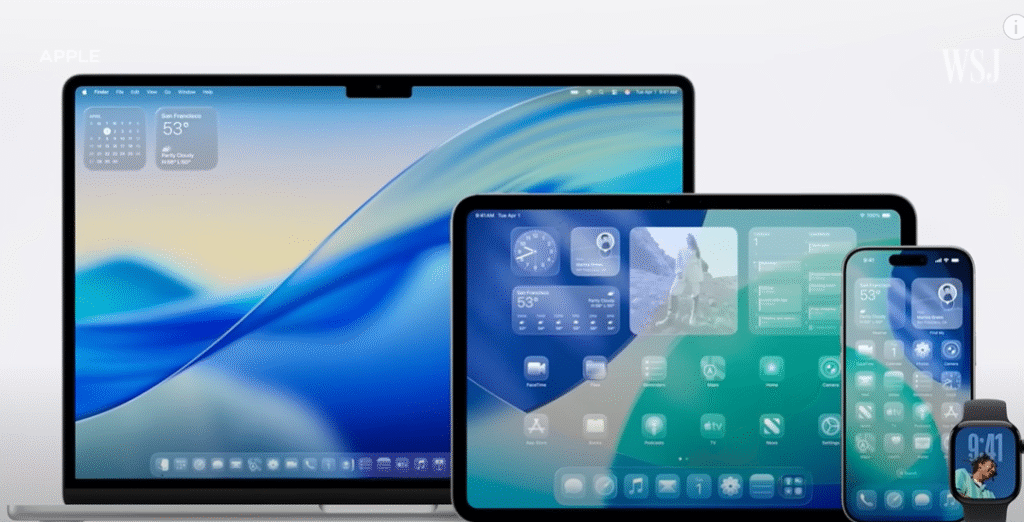AI Affiliate Marketing 2025: Revolutionizing Income Streams
Welcome to the era where artificial intelligence is not just a buzzword—it’s a driving force behind some of the most profitable online businesses. In 2025, AI affiliate marketing is reshaping how marketers create content, engage audiences, and track conversions. This seismic shift is more than just automation; it’s about using smart technology to amplify strategy, efficiency, and earnings. In this guide, we explore how to harness the full potential of AI affiliate marketing in 2025 to build sustainable and scalable income streams.
Harnessing AI for Enhanced Content Creation
AI-Powered Content Generation
In the fast-paced world of affiliate marketing, the ability to consistently produce quality content gives you a competitive edge. AI writing tools—such as Jasper, Copy.ai, and Writesonic—allow marketers to generate blog posts, product reviews, email sequences, and even video scripts within minutes. With natural language processing (NLP) more advanced than ever in 2025, these tools produce text that mimics human tone and intent remarkably well.
However, relying solely on automation isn’t enough. To ensure content remains original and resonates with your brand voice, manual editing and fact-checking are essential. Think of AI as your creative assistant—quick, reliable, but not perfect. Combine it with human insight for best results.
AI-Driven Content Optimization
Creating content is only half the battle. Ensuring it performs well on search engines is critical. AI tools like MarketMuse, Surfer SEO, and Clearscope can analyze your content and compare it with top-ranking competitors. They suggest semantic keywords, rewrite headings for better click-through rates, and highlight readability improvements. This data-backed optimization increases your content’s chances of ranking higher in SERPs, resulting in greater visibility and affiliate earnings.
AI-Powered Audience Targeting and Personalization
Predictive Analytics for Targeted Outreach
Audience targeting has moved beyond basic demographics. AI can now process complex behavioral data to predict buying intent, ideal content timing, and even product preferences. Tools integrated with Google Analytics 4, Meta Ads AI, and CRM software enable affiliate marketers to create laser-focused campaigns based on real-time behavioral trends and customer journeys.
Whether you’re targeting niche SaaS audiences or promoting consumer products, AI-powered analytics can help you segment your audience and deliver messaging with pinpoint accuracy—improving engagement and boosting conversions.
Personalized Content Recommendations
In 2025, personalization is no longer optional—it’s expected. AI-driven recommendation engines, much like those used by Amazon and Netflix, can be embedded into your website or email funnels. By analyzing browsing habits, purchase history, and engagement behavior, these tools suggest products tailored to individual users.
This level of personalization enhances the user experience, increases time-on-site, and dramatically improves your affiliate revenue. For content creators, dynamic email campaigns that adjust product links and offers in real-time are now within reach using AI-powered platforms.
Optimizing Affiliate Performance with AI
AI-Driven Performance Monitoring and Analysis
Gone are the days of manually crunching numbers from affiliate dashboards. AI-powered analytics platforms offer real-time performance monitoring—tracking metrics like CTRs, bounce rates, sales conversions, and even attribution across devices. These platforms often include predictive features, helping marketers identify which campaigns are likely to succeed before investing more budget.
Additionally, AI chatbots can now summarize campaign insights into digestible reports, offering recommendations for adjustments on the fly. This allows marketers to make quick decisions that can drastically improve return on ad spend (ROAS) and lifetime customer value (LCV).
AI-Powered A/B Testing
Speed and precision are everything in digital marketing. AI-powered A/B testing tools like Google Optimize and VWO now test hundreds of variations simultaneously, including headlines, CTAs, layouts, and even pricing structures. These platforms automatically identify winning combinations using real-time data and implement them across your campaigns without human intervention.
This continuous optimization helps marketers scale campaigns with confidence, knowing their creatives are backed by intelligent testing and proven to convert.
Ethical Considerations in AI Affiliate Marketing 2025
As AI becomes deeply integrated into affiliate workflows, ethical boundaries must be clearly defined. It’s essential to maintain authenticity and trust with your audience. Here’s what responsible AI use looks like in affiliate marketing:
- Transparency: Disclose the use of AI-generated content where relevant, especially in reviews or product comparisons.
- Truthful Representation: Avoid using AI to fabricate testimonials or manipulate user behavior unethically.
- Data Privacy: Ensure compliance with GDPR, CCPA, and other global privacy laws when using AI for data-driven campaigns.
- Oversight: Human involvement remains crucial. Always review AI suggestions, especially in regulated niches like finance or health.
Building trust through ethical marketing practices will differentiate successful affiliate brands from short-lived operations in the coming years.
The Future of AI Affiliate Marketing 2025 and Beyond
The integration of AI into affiliate marketing workflows is no longer a competitive advantage—it’s the baseline. Those who fail to adapt risk being outpaced by smarter, more agile competitors. However, for those who invest in learning and implementation, the benefits are immense.
According to a 2025 market report from Gartner, AI-driven personalization is expected to increase e-commerce conversion rates by up to 15–25%. Meanwhile, affiliate networks that leverage AI for fraud detection and smart payouts are streamlining operations, creating more trust between merchants and publishers.
As leading marketing strategist John Smith puts it, “The future of marketing is personalized, and AI is the key to unlocking that personalization at scale.”
By embracing AI tools, marketers can scale content faster, reduce wasted ad spend, and deliver hyper-relevant experiences—all while freeing up time to focus on strategy, partnerships, and audience growth. Whether you’re a solo blogger, a full-time affiliate, or managing a niche content site, the time to future-proof your business with AI is now.
Explore more advanced affiliate techniques and digital marketing insights by visiting our business strategy hub.
Frequently Asked Questions
What are the best AI tools for affiliate marketers in 2025?
Top AI tools for affiliate marketers include Jasper and Copy.ai for content creation, MarketMuse for SEO optimization, GA4 with predictive analytics, and ChatGPT for customer interaction automation. Choosing the right stack depends on your content goals and audience targeting strategy.
How can AI improve my affiliate marketing ROI?
AI enhances ROI by streamlining tasks, automating campaign testing, improving targeting accuracy, and offering actionable insights based on real-time data. These improvements allow you to scale winning strategies faster while reducing inefficiencies.
Are there any ethical concerns regarding AI in affiliate marketing?
Yes. Ethical concerns include transparency in AI-generated content, ensuring factual accuracy, respecting user privacy, and avoiding manipulative practices. Responsible use of AI builds long-term trust with audiences and ensures compliance with regulations.
How can I stay updated on the latest AI trends in affiliate marketing?
Stay current by subscribing to newsletters from top marketing publications, following AI tool developers, joining affiliate marketing communities, attending virtual summits, and actively experimenting with new tools. Continuous learning is essential in this fast-evolving space.



